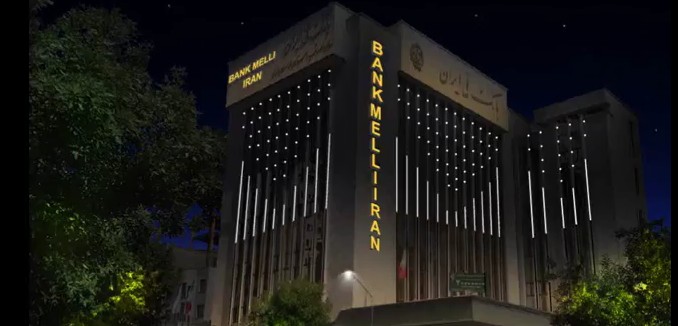A federal appeals court ruled that victims of Iran-backed terror may sue Bank Melli, a commercial bank owned by the Iranian regime, for $17.6 million in damages, the San Francisco Chronicle reported yesterday.
Although foreign nations normally can’t be sued in U.S. courts, their immunity does not cover harm caused by state-sponsored terrorism. The Ninth U.S. Circuit Court of Appeals in San Francisco said the terrorism exception allows four groups of victims to sue the Iranian-owned Bank Melli for money held by Visa, whose credit cards the bank started accepting in 1991. …
The $17.6 million that the bank claimed in fees from Visa was frozen in 2007 as part of U.S. government sanctions against Iran for its alleged nuclear weapons program. The Obama administration’s recent agreement with Iran would require the Mideast nation to renounce nuclear weapons development and submit to inspections in exchange for future lifting of the sanctions. It does not affect Wednesday’s ruling. …
Lawyers for Bank Melli argued that it should not be held responsible for harm caused to the plaintiffs because it was not a party to the suits against Iran and because the federal law allowing seizure of frozen funds was not passed until 2008 and should not apply retroactively. The appeals court disagreed.
The lead plaintiffs in the case are the family of Marla Bennett, a 24 year old American student who was killed in a 2002 terror attack at Hebrew University orchestrated by Hamas, an Iran-backed terror group. Other plaintiffs include the victims of a 1996 bombing at the United States military base at Khobar Towers in Saudi Arabia, which killed 19 American Air Force personnel, as well as victims of a 2001 bombing at a Sbarro’s pizzeria in Jerusalem, which killed 15 people and injured over 100. Yesterday, an American official said that the lead suspect in the Khobar Towers bombing was captured and in custody.
While according to U.S. courts the plaintiffs are owed a combined total of over $1 billion in damages, they agreed to split the $17.6 million if they win their suit against Bank Melli.
Though the United States government placed sanctions on Bank Melli in 2007, some European banks still illegally conducted business with it. Those dealings led to a plea deal with BNP Paribas, France’s largest bank, which settled with the United States government on a penalty of $8.9 billion last year.
Earlier this week, a federal judge in New York ordered the Palestinian Authority to pay a $10 million bond as it appealed a $1 billion terror verdict.
[Photo: Mehr Afarin-e Kish / YouTube ]




